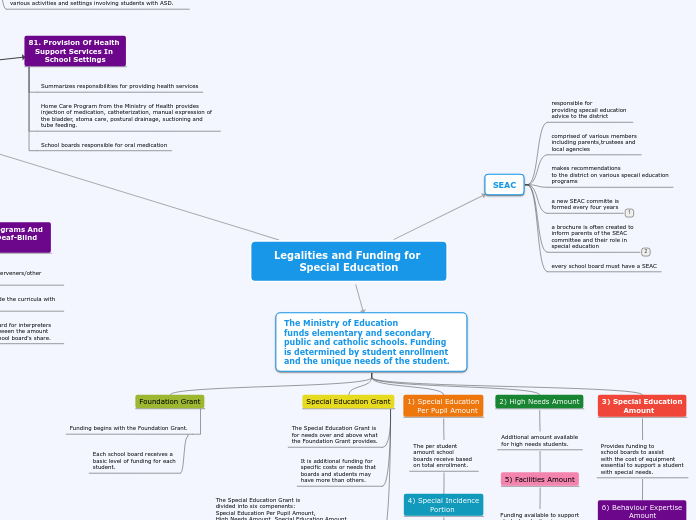door Hendrika Bos 4 jaren geleden
275
Legalities and Funding for Special Education
This is a sample mind map

door Hendrika Bos 4 jaren geleden
275

Meer zoals dit
playback feature shows each student's contribution
6) Behaviour Expertise Amount
Funding available to support board level expertise in applied behavioural analysis.
5) Facilities Amount
Funding available to support students who live in a care, treatment, custody or correctional facility.
4) Special Incidence Portion
School boards can apply for funding to cover the cost of staff support for students with exceptionally high needs.
Each school board receives a basic level of funding for each student.